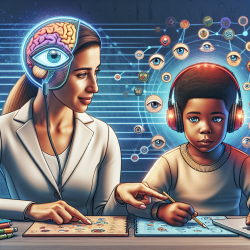Introduction
In the evolving landscape of healthcare, person-centered care has emerged as a pivotal approach to enhance patient outcomes, especially for those with complex chronic conditions. The Veterans Health Administration's (VHA) Whole Health System of Care offers a comprehensive model that can be adapted to various settings, including online therapy services for children. This blog explores how insights from the VHA's model can be leveraged to improve online therapy practices, focusing on person-centered care principles.
Understanding the Whole Health System
The VHA's Whole Health (WH) System of Care is designed to empower veterans by integrating conventional and complementary health resources. This model emphasizes a holistic assessment of the individual's life context, prioritizing what truly matters to them, and setting personalized health and well-being goals. The approach is not only applicable to veterans but also offers valuable lessons for other healthcare settings, including online therapy for children.
Key Insights for Online Therapy Practitioners
Implementing person-centered care in online therapy involves several critical components:
- Comprehensive Assessment: Just as the WH model emphasizes understanding the veteran's life context, online therapists should assess the child's environment, interests, and challenges to tailor interventions effectively.
- Prioritizing What Matters: Engaging children and their families in conversations about their goals and what they value can guide therapy sessions and ensure they are aligned with the child's aspirations.
- Collaborative Goal Setting: Therapists should work with children and their families to set realistic and meaningful goals, fostering a sense of ownership and motivation in the therapeutic process.
- Resource Allocation: Equip families with resources and information to support the child's goals, similar to how the WH model connects veterans with supportive services.
Challenges and Solutions
Implementing person-centered care in online therapy can be challenging due to factors such as limited interaction and the need for effective communication. However, by adopting a team-based approach and leveraging technology, therapists can overcome these barriers. Regular training and feedback can also enhance practitioners' comfort and proficiency in delivering person-centered care.
Encouraging Further Research
The VHA's experiences underscore the importance of ongoing research and adaptation in implementing person-centered care. Online therapy providers should engage in continuous learning and research to refine their practices and improve outcomes for children. Collaborating with researchers and other practitioners can provide valuable insights and foster innovation in therapy delivery.
Conclusion
By integrating person-centered care principles from the VHA's Whole Health System, online therapy providers can enhance their services and achieve better outcomes for children. This approach not only aligns with best practices but also empowers children and their families to actively participate in their therapeutic journey.
To read the original research paper, please follow this link: Using a person-centered approach in clinical care for patients with complex chronic conditions: Perspectives from healthcare professionals caring for Veterans with COPD in the U.S. Veterans Health Administration’s Whole Health System of Care.










